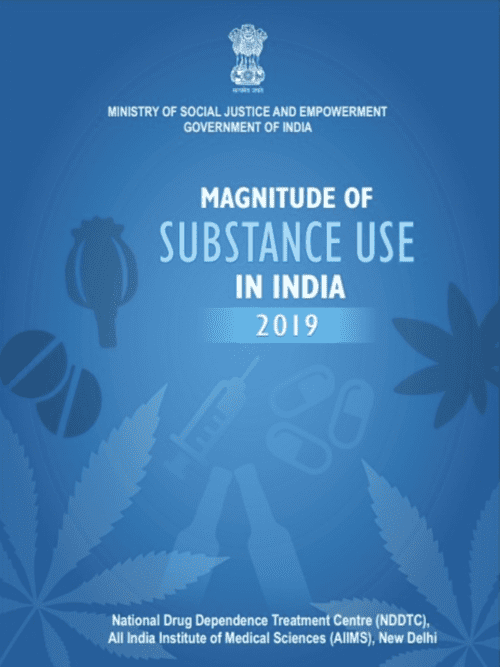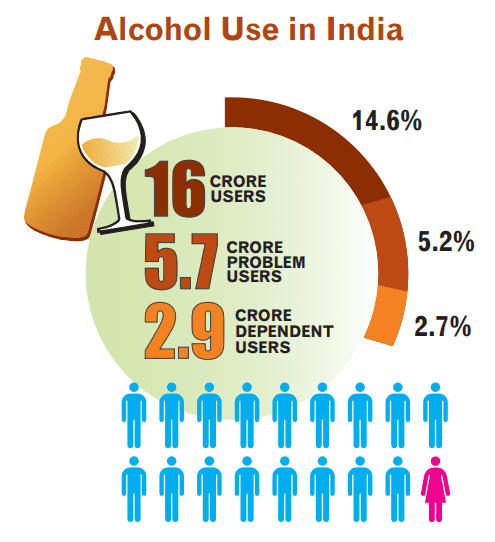India: Magnitude of Alcohol Problems
A report by the Ministry of Social Justice and Empowerment (MoSJE), Government of India outlines the magnitude of alcohol problems in the country along with other substance use issues.
Key findings for alcohol use in India are as follows:
- Alcohol is the most common psychoactive substance used by Indians.
- Alcohol use has been reported in all the age groups, including among children aged 10-17 years.
- About 14.6% of the population, between 10 and 75 years of age, uses alcohol. This translates to 160 million people.
- Use of alcohol is considerably higher among men (27.3%) as compared to women (1.6%). For every one woman who consumes alcohol, there are 17 alcohol using men.
Alcohol harm in India
The vast majority of the Indian population lives free from alcohol. However, alcohol harm is pervasive and a serious obstacle to development in India.
Key findings regarding alcohol harm in India are as follows:
- Every third alcohol user in India needs help for alcohol related problems.
- Only about 1 in 38 people with alcohol dependence, report getting any treatment or help with alcohol problems.
- States with the high prevalence of alcohol use are Chhattisgarh, Tripura, Punjab, Arunachal Pradesh and Goa.
- States with high prevalence (more than 10%) of alcohol use disorders are: Tripura, Andhra Pradesh, Punjab, Chhattisgarh, and Arunachal Pradesh.
Alcohol policy solutions
 The report sets forth several recommendations to effectively manage the alcohol and other durg use problem within the country and to curb the harm from these substances to individuals and society.
The report sets forth several recommendations to effectively manage the alcohol and other durg use problem within the country and to curb the harm from these substances to individuals and society.
The key recommendations for the way forward are:
- Scientific evidence-based treatment needs to be made available for people with substance use disorders – at an adequate scale.
- Evidence-based substance use prevention programmes are needed to protect the young people.
- A conducive legal and policy environment is needed to help control drug problems.
- The approach of generating and utilizing scientific evidence must continue.
Source Website: Ministry of Social Justice and Empowerment (MoSJE), Government of India
